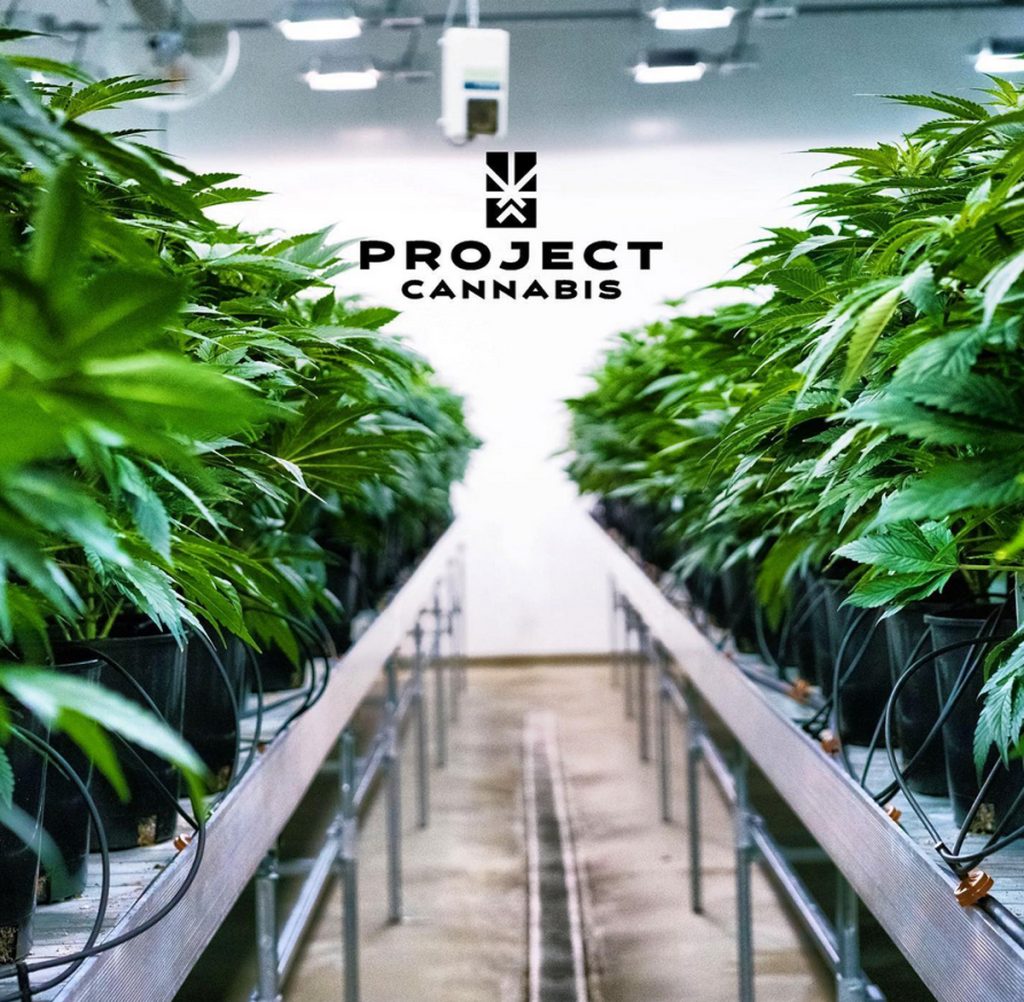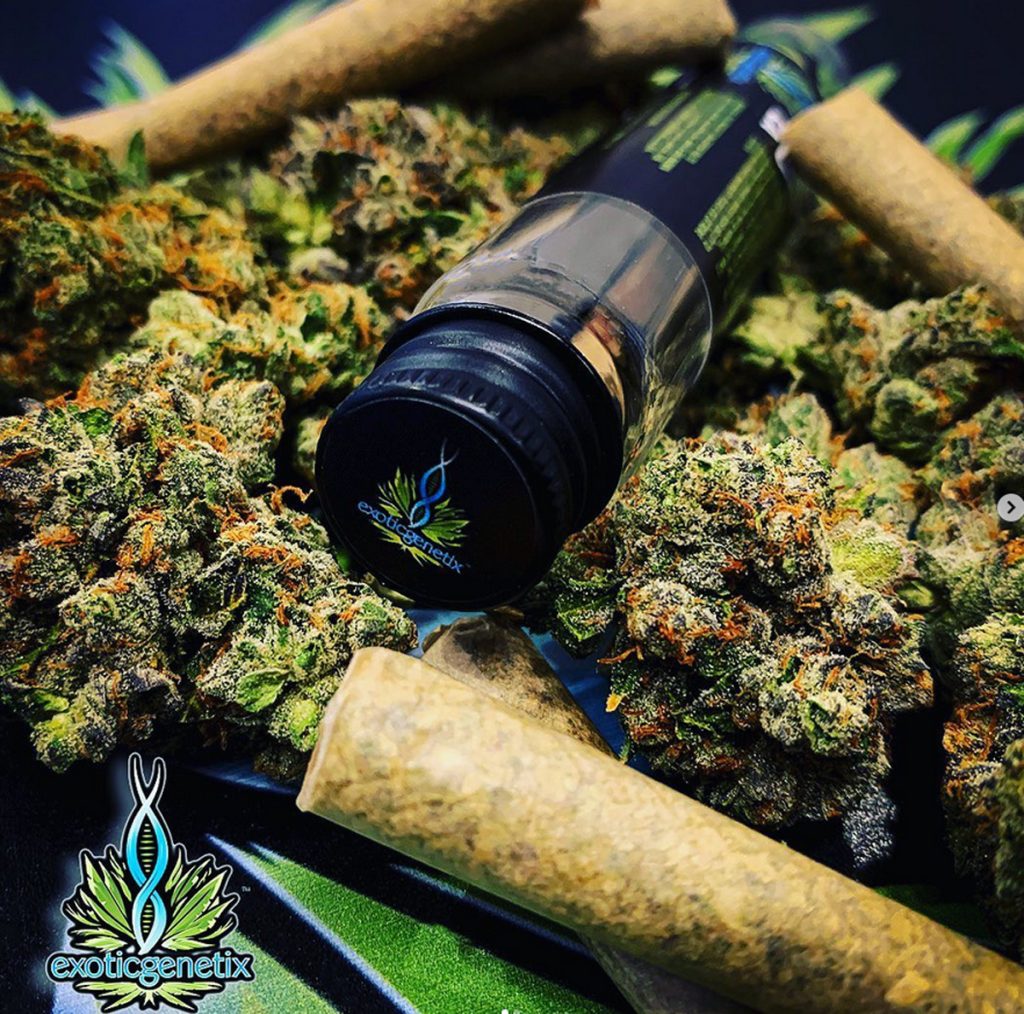Does Weed Help With Allergies? Relief & Benefits

This post is part of our Best Dispensaries Around the Bay Area series, sponsored by Project Cannabis.
Disclaimer: The content provided in this article is intended for informational purposes only and not as a substitute for professional medical advice, diagnosis, or treatment. Always speak to your doctor about the risks of allergies and benefits of any treatment.

When the seasons change and leaves begin to turn, allergies can become a major pain. Unfortunately for the allergy prone–it’s not just when flowers begin to blossom and the bees begin to pollinate, that sneezing, wheezing, coughing, and congestion occur. With tree pollination beginning at the end of winter, grass pollination manifesting in the Spring and Summer, and ragweed pollen causing mayhem through September, it’s no wonder why so many people experience allergies all year round.
Pollen, dust, mold, bacteria, and grass, are among the leading sources of allergies–but what are the best solutions to treat them once they arise? Is there an effective remedy out there to help alleviate allergy symptoms that doesn’t also come with undesirable side effects like drowsiness and double vision?
If you’re sensitive to environmental changes and are not seeing results with allergy relief products presently on the market, it might be time for you to try out cannabis as a remedy for allergies.
And before you ask–does weed help with allergies, we’ll cut straight to the point–yes, cannabis is thought to interact with the brain and body to relieve allergies in many unique ways.
Now, let us tell you how.
Table of Contents
How Does Weed Help With Allergies?
So, how does weed potentially help with allergies?
To tackle this question, let us first understand how allergies even happen. There are tons of allergens circulating through the air we breathe, and those with hypersensitivities are most susceptible to developing reactions to them. Allergies commonly occur as an immune system response to foreign particles entering the body–typically through the mouth, nasal passages, or contact with and absorption through skin. In an attempt to fight off said foreign invaders, antibodies release histamine, causing one to sneeze, wheeze, cough, and all that in between. Our bodies respond to such irritations that allergens–such as pollen–inflict on our cells by becoming inflamed. Luckily, this amplified histamine and increased inflammation are bodily functions that cannabis can counteract.
Cannabinoids found in cannabis–such as THC and CBD–are thought to activate the body’s immune system to eradicate disruptive and potentially harmful agents. Those with allergies might harness the powers of THC and CBD, which are thought to function as antibody reducers by blocking the spiked histamine. This blockage would theoretically be responsible for fewer allergic reactions in the body. Through balancing the body’s immune system and cognitive systems, some could suggest that cannabis may even be a safer treatment than more commonly used antihistamines such as Benadryl or Allegra-D.
Benefits of Using Weed to Treat Allergies
Believe it or not, utilizing weed to treat allergies might yield impressive results. Both CBD and THC are thought to serve as remedies for inflammation, which allergic reactions often cause.
Cannabis is believed to contain anti-inflammatory properties that have the capacity to open up constricted airways by reducing inflammation. Marijuana may help soothe inflammation by activating receptors that produce fewer pro-inflammatory agents, or cytokines. As a result, allergy sufferers could possibly experience relief from undesirable symptoms like nasal congestion, excessive coughing, trouble breathing, irritation of the eyes and nose, and sneezing fits.
That congested feeling you hate? It’s caused by your body’s natural production of mucus in an attempt to capture foreign substances, like pollen, and stop them from reaching the lungs. THC and CBD may counteract this by reducing the production of mucus in the lungs, ultimately unclogging your obstructed airways. Those experiencing breathing issues and coughing as a side product of allergies may benefit from products high in CBD. Cannabis products with a high percentage of CBD, including CBD oils, possess antimicrobial characteristics that are thought to diminish seasonal allergies such as hay fever.

Side Effects of Using Weed to Treat Allergies
Yes, we have established that weed may help alleviate allergy symptoms in some capacity, but can weed cause allergies, too? The truth is, a select few people may be allergic to weed. Considering marijuana is a pollinating plant, and pollen is an allergen, it is possible to have an allergic reaction to it if consumed, inhaled, or put in contact with it. Some clear indicators of a marijuana allergy include rashes, swelling, eye allergies, hives, runny nose, sneezing, swelling and watering eyes, itching, and wheezing.
Thankfully, there are specific correlations between other allergies that might suggest your ability to tolerate weed. Are you allergic to grapefruit, apples, bananas, tomatoes, eggplant, or almonds? Then it’s highly likely that you are allergic to weed, too. Should consuming any of these foods result in inflammation, hives, or other negative side effects, you’ll want to consult with a doctor before considering weed as a treatment for allergy relief. (We mean, you should always consult with a doctor before considering weed as a treatment for anything, right?)
Is Smoking the Only Way to Use Weed to Treat Allergies?
Smoking is not the only way to treat allergies, and in fact it isn’t the best solution for those who have asthma or other respiratory problems. Does smoking weed make allergies worse? Not necessarily, but if your symptoms include coughing, wheezing, shortness of breath, and inflammation in the throat, lungs, and nose, you’ll want to opt for a different form of consuming marijuana for allergy relief than smoking, as it can aggravate your symptoms and intensify coughing.
Other forms of marijuana for allergy relief–aside from smoking flower or pre-rolls–include edibles, vapes, oils, and topical creams. If you have an allergic reaction, a cream applied to the area may decrease irritation and inflammation. Edibles and oils that contain specific terpenes with anti-inflammatory properties are thought to be just as effective in treating allergies without causing discomfort to your respiratory system.
Best Strains for Allergy
Cannabis allergy treatment is thought to be highly effective, but that all depends on the strain and dosage. You’ll want to do some research or consult with a budtender at your local dispensary to determine the best strains to treat allergies that are also in line with your other goals as they pertain to weed consumption.
If you are experiencing inflamed airways due to allergies and asthma, you’ll want to scope out strains with terpenes that contain anti-inflammatory and anti-allergen properties, such as Valencene and Borneol. Harlequin is a solid strain that contains Myrcene, which is believed to soothe inflammation and promote decongestion–helping combat excess mucus production that comes with heightened allergies.
Blue Dream and Pineapple Express are other wildly popular weed strains that are high in the pinene terpene. Alpha-pinene and beta-pinene are terpenes known as bronchodilators. They are thought to bind to receptors in the lungs and dilate airways within the lungs. This dilation of the airways can relax lung muscles, making it easier for you to breathe. Any strain high in pinene is also thought to be useful for those with asthma and those experiencing respiratory issues.
ACDC is another strain recognized for its ability to reduce inflammation that is also low in THC and high in CBD. You’ll want to choose this option if you’re looking for allergy relief with very little psychoactive properties.
Is Sativa or Indica Better For Allergies?
Allergy sufferers are dying to know–is sativa or indica better for allergies?
Sativa strains are recognized to have anti-inflammatory and bronchodilator properties, however several indica strains promote relaxation and muscle tension which might help relax your lung muscles and reduce irritation. Both strains may offer treatment for allergy symptoms; however, sativa is more energizing and indica acts as a sedative.
As always, consult with a medical professional who can assist in guiding you to the best weed products for your specific symptoms.
How To Purchase Marijuana
Determined to put your allergies to an end? This most loved San Francisco cannabis dispensary, has all the remedies you need–and then some. Don’t fret if you’re not sure what you’re looking for–a knowledgeable budtender eagerly awaits your arrival to help you find the refuge you seek. Allergies can be such a pain, but treating them doesn’t have to be a burden! Check out Project Cannabis today to find CBD and THC goodies that are not only pleasurable to consume, but might just be able to offer fast-acting relief for your allergy related woes.

Key Takeaways On Weed And Allergies
We’ve answered the question “Does weed help with allergies?” and we got clear on all the ways weed and allergies are thought to interact. Let’s run it back, shall we?
- THC is thought to suppress the immune system’s reaction to allergens by lessening the activation of the antibodies that trigger the release of histamine, in turn preventing allergic reactions
- Weed is believed to help reduce inflammation, by stopping the release of proinflammatory agents known as cytokines
- While weed can potentially help some with allergies, it can also cause an allergic reaction to some
- Cannabis is thought to alleviate nasal congestion, coughing, and difficulty breathing by reducing mucus production and opening up airways
- Cannabis might even be a viable replacement for meds that doesn’t come with a laundry list of negative side effects
- It is recommended to avoid smoking cannabis with specific allergy symptoms such as coughing, wheezing, shortness of breath, and congestion, as it can further inflame your throat or worsen sinus problems
So there you have it–cannabis can conquer allergies! Whether you’re experiencing allergies from environmental factors like pollen, mold, or animal hair, it’s best to seek help immediately and figure out the source.
Media credits: Images of concepts about weed helping with allergies in this article are copyright of LaJolla.com.

















